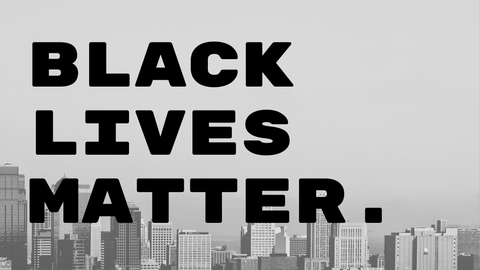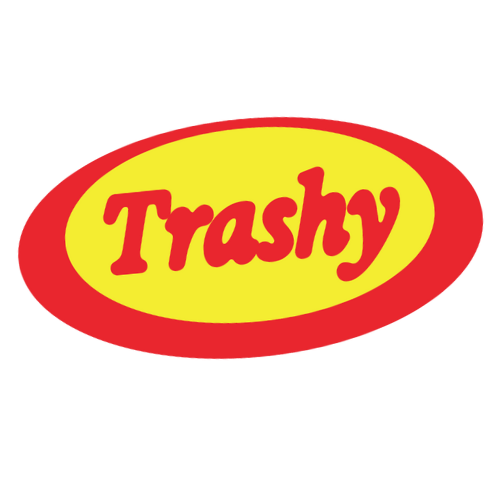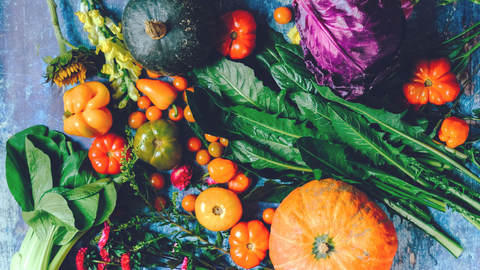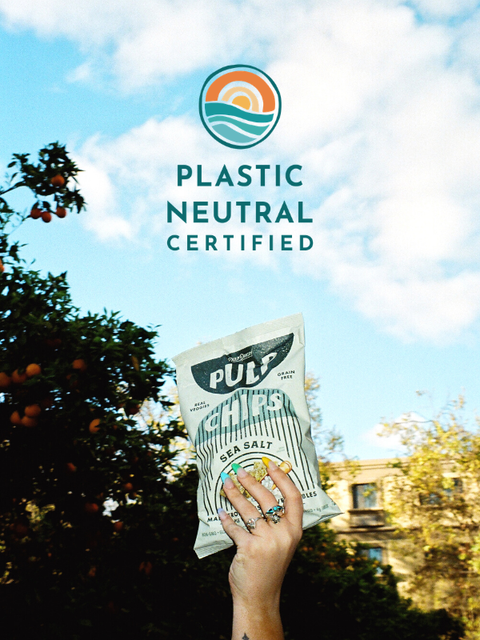
I started Pulp Pantry because I was inspired to be one small part of a solution to create the kind of world I wanted to live in - and the one I hope future generations can grow up in.
That includes a world in which Black Lives Matter.
Where black children, black families, black womxn, black men are safe. Where all of us have the opportunity to thrive and build a life of meaning, purpose, without prejudice, and certainly without fear for their lives.
Pulp Pantry is (and always has been) a brand built for People and Planet.
We cannot simply bear witness to the hurt in our communities, the result of decades of oppression of black folks nationwide. As Angela Davis said, "I'm not longer accepting the things I cannot change. I'm changing the things I cannot accept."
For Pulp Pantry, I'm pledging to continue to build social justice and environmental justice into our business model, and the impact we seek to create in the world.
What does this mean specifically?
As we grow, we need to exemplify diversity, equity and inclusion in our leadership, and our board. By participating in diverse spaces, it's easy to hire from a diverse talent pool. We may be small now, but that means there's never been a better time to set the intention and expectation for hiring practices to come.
We're committed to using our growing platform to amplify and compensate Black creators and voices, as well as supporting organizations that are working to advance food justice for our communities. One easy place to start - you can expect more blog posts from us that will cover Intersectional Environmentalism, Inclusive Wellness, featuring the words from BIPOC thought leaders.
Plus, lifting up other founders in our network in any ways that we can. For more info on how you can support BIPOC founders in the space, check out this resource: https://foodbevy.com/10-black-owned-food-and-beverage-brands/
Other small ways that I can see our brand help: reducing the barriers to entrepreneurship for BIPOC and otherwise marginalized groups through mentorship programs, internship programs, and activism that gives back to our communities.
How about you? Are you looking for more ways to get involved?
Below are some ways to get involved to actively fight racism, to be actively anti-racist. This is a daily practice, and by no means is donating or reading a one-off act. Each of these organizations and leaders has their own slew of resources to learn from, and we encourage you to keep digging deeper by using these starting points below:
TO DONATE
- The ACLU Racial Justice Program aims to preserve and extend constitutionally guaranteed rights to people who have historically been denied their rights on the basis of race.
- Black Lives Matter (find your local chapter)
- Community Bail Funds - search for your local city's community bail fund and show your support. The Community Justice Exchange has a list for you.
- NAACP (National Association for the Advancement of Colored People), a national association working to secure the political, educational, social, and economic equality of rights in order to eliminate race-based discrimination and ensure the health and well-being of all persons.
- Southern Poverty Law Center
-
NBFA (National Black Farmers Association) a non-profit organization representing African American farmers and their families in the United States. NBFA's education and advocacy efforts have been focused on civil rights, land retention, access to public and private loans, education and agricultural training, and rural economic development for black and other small farmers.
- Campaign Zero. The comprehensive platform of research-based policy solutions to end police brutality in America. Check out their recent campaign, #8CantWait, which urges mayors and city officials to adopt 8 simple policies for policing with major potential to save lives.
TO USE YOUR VOICE
- Sign petitions from:
- https://colorofchange.org/
- https://blacklivesmatter.com/defundthepolice/
- Text FLOYD to 55156 (for George Floyd)
- Text JUSTICE to 55156 (for Ahmaud Arbery)
- Text ENOUGH to 55156 (for Breonna Taylor)
- So many more.... Visit this site for an ongoing list.
- Get involved. Write emails, call your local legislators. Your State's Attorney has the power to charge cops, and to determine how many people are put into our jails and prisons.
- In a major city? Check out what your local chapter of Black Lives Matter organizers are doing. In Los Angeles? Here's your chapter. Not a POC? Check out ally groups like White People for Black Lives Matter, which focus more on education and resources for white allies to support the movement.
- Check on your city budget. Do you know what percentage of city funding is dedicated to policing? Speak up. How could this money be better spent on building community and supporting racial justice in your neighborhood? Call or email your local representatives to state your concerns. Black Lives Matter LA, for example, has proposed a People's Budget LA as the better way to invest in our city's future. If you live in LA, here are the emails of your council members and draft messages to send.
LEARN
Read books about anti-racism.
Sign up for anti-racism daily via Nicole Cardoza, or Rachel Cargle's DO THE WORK 30 day challenge.
Follow influential Black leaders, writers, and thinkers.
@rachel.cargle
@nicoleacardoza
@osopepatrisse
@mspackyetti
@nonamehiding
@nonamereads
@thedreamdefenders
Pod Save the People (wherever you get your podcasts)
@domoniquedrakeford
@ayanaeliza
@femalecollective
@tamikadmallory
@domrobxrts
We could go on.... and on.... and on.
What else? What can we do to help you?
Thank you for taking the time to read and take a stand with us.
In solidarity,
Kaitlin Mogentale
founder, Pulp Pantry





